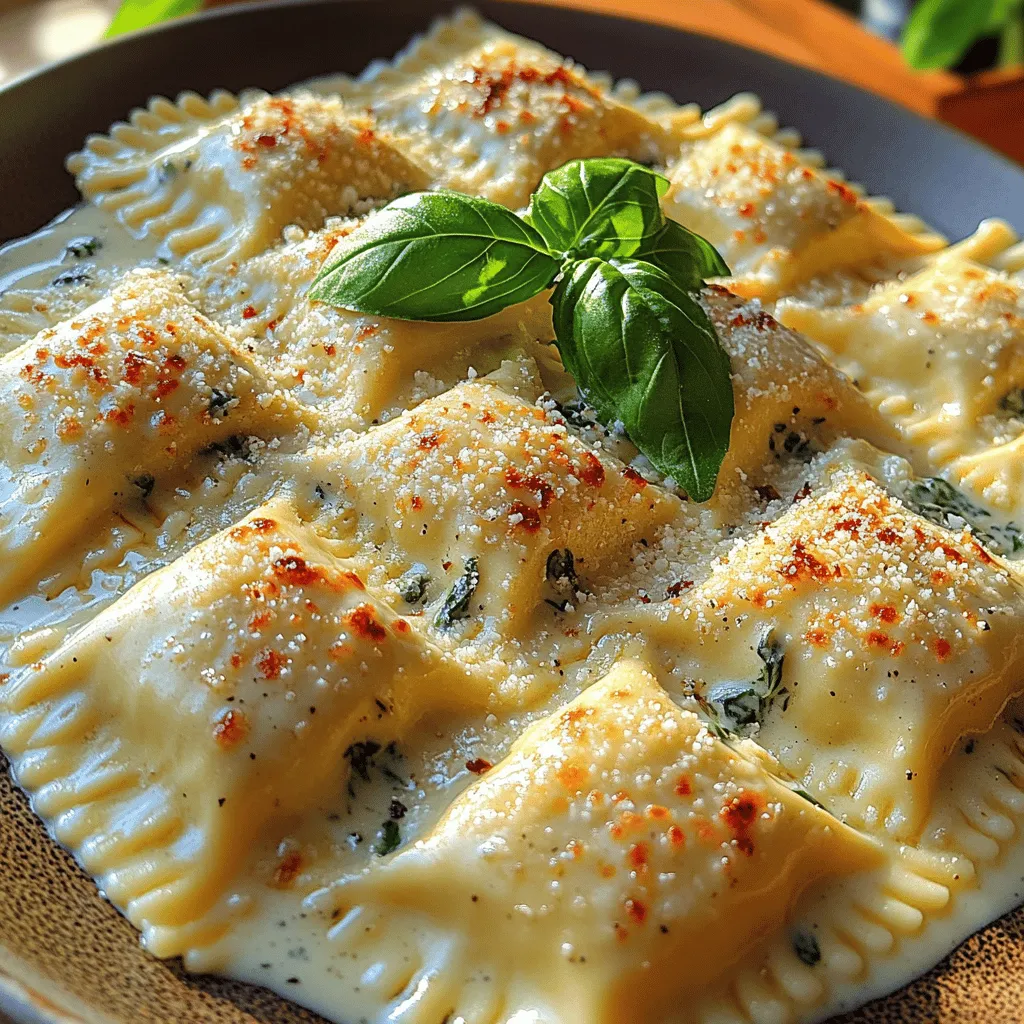Introduction
Risotto is more than just a dish; it’s a culinary tradition steeped in history, originating from the northern regions of Italy, particularly Lombardy and Piedmont. This creamy rice dish has become a beloved staple in kitchens worldwide, celebrated for its comforting texture and rich flavors. At the heart of risotto’s appeal is its versatility, allowing for endless variations that can cater to diverse palates and dietary preferences.
When preparing risotto, the quality of your ingredients is paramount. A few key components can elevate a simple dish into a gastronomic experience that leaves a lasting impression. The combination of creamy textures and umami-rich flavors in a well-made risotto can transform an ordinary meal into something extraordinary. In this guide, we will focus on the unique flavors of creamy mushroom risotto, exploring how the earthiness of mushrooms complements the creaminess of the rice, creating a dish that is both satisfying and indulgent.
Understanding Risotto
What is Risotto?
Risotto is an Italian rice dish characterized by its creamy consistency, achieved through a specific cooking technique that involves slow cooking and stirring. Unlike other rice dishes, risotto is not boiled but rather cooked in a broth, which is gradually absorbed by the rice, allowing it to release its starch. This process is what gives risotto its signature creamy texture.
Definition and Characteristics
At its core, risotto is defined by the type of rice used and the method of preparation. The rice should be high in starch, which is why Arborio, Carnaroli, and Vialone Nano are the most commonly used varieties. These short-grain rice types have a unique ability to absorb liquid while still retaining a firm bite, making them perfect for achieving that desired creamy consistency.
The Significance of Arborio Rice
Arborio rice, in particular, is a favorite among chefs and home cooks alike for its plump grains and high starch content. When cooked, Arborio rice releases a creamy starch that coats each grain, resulting in a luxurious mouthfeel. This rice variety is readily available in most grocery stores, making it an accessible choice for those looking to create authentic risotto at home.
The Cooking Technique
The cooking technique for risotto is crucial to its success. It involves a method of gradual absorption and constant stirring, which requires patience and attention. First, the rice is toasted in a bit of fat—usually butter or olive oil—before being deglazed with white wine. This step not only adds depth of flavor but also enhances the overall richness of the dish.
Importance of Stirring and Slow Cooking
Stirring is a fundamental part of the risotto-making process. It ensures that the rice cooks evenly and prevents sticking. As you stir, the grains rub against each other, releasing starch and creating that creamy texture we all love. The slow cooking process allows the rice to absorb the broth gradually, ensuring that it cooks through without becoming mushy.
The Role of Broth in Achieving Creaminess
Broth is the lifeblood of risotto, imparting flavor and richness as the rice absorbs it. The choice of broth can significantly affect the final taste of your dish. While vegetable broth offers a light, fresh flavor, chicken broth brings a heartier richness that pairs beautifully with the umami notes of mushrooms. Using homemade broth can elevate your risotto even further, providing a depth of flavor that store-bought versions often lack.
Ingredients for Creamy Mushroom Risotto
Essential Ingredients
Creating a delicious creamy mushroom risotto requires a few essential ingredients that work together to build flavor and texture.
– Arborio Rice: As previously mentioned, this short-grain rice is essential for achieving that creamy consistency.
– Fresh Mushrooms: The star of this dish! Varieties such as cremini, shiitake, or even wild mushrooms can offer different flavor profiles, enhancing the dish’s complexity.
– Onion and Garlic: These aromatics form the flavor base for the risotto, providing depth and warmth.
– White Wine: A splash of dry white wine adds acidity and a layer of flavor that balances the richness of the dish.
– Vegetable or Chicken Broth: Choose a high-quality broth for the best results; it’s the liquid that transforms the rice into a creamy delight.
– Parmesan Cheese: This cheese contributes to the creaminess and adds a salty, nutty flavor that complements the mushrooms.
– Butter: A finishing touch that enhances the overall richness of the risotto.
Optional Ingredients
To customize your creamy mushroom risotto, consider these optional ingredients:
– Fresh Herbs: A sprinkle of chopped parsley or thyme can brighten the dish and add a fresh note.
– Variations with Proteins: Feel free to include proteins like sautéed chicken or shrimp for a heartier meal.
Preparation Steps
Preparing the Ingredients
Before diving into the cooking process, it’s essential to prepare your ingredients properly. This step will ensure a smooth cooking experience.
Cleaning and Slicing Mushrooms
Start by cleaning your mushrooms with a damp cloth or paper towel to remove any dirt. Avoid soaking them in water, as they are porous and can absorb excess moisture. Once cleaned, slice the mushrooms evenly to ensure they cook uniformly. If using a variety of mushrooms, consider slicing them into different shapes for visual appeal.
Chopping Onions and Garlic
Next, finely chop your onion and garlic. For the onion, aim for small, uniform pieces to promote even cooking. As for the garlic, a fine mince will release more flavor into the risotto. These aromatics will form the foundation of your dish, so take the time to prepare them properly.
Making the Broth
While you can use store-bought broth, making your own can take your risotto to the next level. If you choose to go the homemade route, here are a few tips:
Tips for Enhancing Store-Bought Broth
If you’re pressed for time, enhance your store-bought broth by simmering it with fresh herbs, garlic, and onion for half an hour. This will infuse additional flavor and richness into the broth.
How to Make Homemade Broth (if Desired)
To make a simple vegetable broth, combine chopped onions, carrots, celery, garlic, and any leftover vegetable scraps in a large pot. Cover with water, add herbs like bay leaves and thyme, and simmer for at least an hour. Strain the mixture, and you’ll have a flavorful broth ready for your risotto.
Cooking the Risotto
With your ingredients prepped and your broth ready, it’s time to step into the kitchen and start cooking!
Sautéing the Aromatics
Begin by heating a tablespoon of olive oil and a tablespoon of butter in a large saucepan over medium heat. Once the butter has melted and is bubbling, add your chopped onions. Sauté them until they are translucent and fragrant, about 3-4 minutes. Then, add the minced garlic and cook for an additional minute, ensuring it doesn’t burn.
How to Properly Sauté Onions and Garlic
The key to properly sautéing onions and garlic is to keep the heat moderate. Too high, and they may brown too quickly, developing a bitter taste. Instead, aim for a gentle sauté that allows the flavors to meld without scorching.
Toasting the Arborio Rice
Once your aromatics are beautifully cooked, it’s time to toast the Arborio rice. Add the rice to the pan and stir it into the onion and garlic mixture. Toast the rice for about 2-3 minutes, until the edges become translucent. This step enhances the nutty flavor of the rice and prepares it to absorb the liquid.
By following these initial steps with care, you set the stage for a creamy mushroom risotto that is sure to impress. As we continue to explore the remaining steps of this delightful recipe, you’ll discover how to create a dish that is not only comforting but also a true celebration of flavors.

Importance of Toasting for Flavor
Toasting the rice is a crucial step in achieving the perfect creamy spinach ricotta ravioli. This process enhances the flavor profile by developing nutty undertones and creating a solid foundation for the dish. Begin by adding the dry ravioli to a hot, dry skillet over medium heat. Stir continuously for about 2-3 minutes until the pasta begins to develop a light golden color and emits a toasty aroma. This step not only adds depth to the dish but also helps to prevent the ravioli from becoming mushy during cooking.
Deglazing with White Wine
After toasting the ravioli, it’s time to incorporate white wine, which serves to enhance the flavors significantly. Choose a dry white wine like Sauvignon Blanc or Pinot Grigio for the best results. Once the ravioli is toasted, pour in about half a cup of white wine and use a wooden spoon to scrape the bottom of the skillet. This process, known as deglazing, lifts the caramelized bits of flavor from the pan and infuses them back into the dish. Allow the wine to simmer for 2-3 minutes until it reduces slightly and the alcohol evaporates, leaving behind a rich flavor.
Techniques for Adding Wine to Enhance Taste
When adding wine, it’s essential to do so gradually. Start with a few tablespoons and allow the ravioli to absorb the liquid before adding more. This method ensures that the flavors meld beautifully without overwhelming the dish. The gradual addition also prevents splattering and helps maintain a consistent cooking temperature. As the wine reduces, the ravioli will soak up the flavors, creating a more robust taste.
Gradual Addition of Broth
Once the wine has been absorbed, it’s time to add broth. For a creamy spinach ricotta ravioli, a vegetable or chicken broth works beautifully. The key is to add the broth in increments, about one ladleful at a time. Stir the ravioli gently, allowing them to absorb the broth fully before adding the next ladle. This technique ensures that the ravioli cook evenly and the broth integrates seamlessly into the dish.
The Proper Way to Add Broth to Achieve Creaminess
To achieve that luxurious creaminess, ensure that the broth is warm before adding it to the skillet. Cold broth can shock the ravioli, causing them to cook unevenly. As you add the broth, continue to stir gently but consistently. This constant movement encourages the starches in the ravioli to release, creating a silky sauce that clings perfectly to each piece.
Stirring Techniques
Stirring is not just a mechanical action; it’s an art form that can significantly impact the texture of your creamy spinach ricotta ravioli. Use a wooden spoon or a silicone spatula to avoid scratching your pan. Stir in a figure-eight motion to ensure even cooking and to prevent any ravioli from sticking together or to the pan. Look for the sauce to thicken and become glossy, which indicates that it’s reaching the right consistency.
Importance of Constant Stirring and What to Look For
As you stir, pay attention to the sound and texture. A gentle bubbling sound is ideal, indicating that the ravioli are cooking without boiling aggressively. You should be looking for a sauce that coats the back of your spoon—this is the sign that the starches have released adequately, lending that creamy texture you desire. If the mixture begins to dry out before the ravioli are cooked through, add a bit more broth and continue stirring.
Incorporating the Mushrooms
Mushrooms are a fantastic addition to creamy spinach ricotta ravioli, lending an earthy flavor that complements the dish beautifully. When adding mushrooms, timing is everything. Sauté them separately before incorporating them into the ravioli. This allows you to achieve a perfect texture while ensuring they are cooked through and flavorful before mixing them with the pasta.
When to Add Mushrooms
Add the sautéed mushrooms to the ravioli once they are fully cooked and just before you finish the dish. This timing allows the mushrooms to retain their texture and flavor, enhancing the overall dish without becoming soggy.
Timing for Maximum Flavor Infusion
For maximum flavor infusion, allow the mushrooms to sauté for about 5-7 minutes in a separate pan with olive oil, garlic, and a pinch of salt. Once they are golden brown and have released their moisture, add them to the skillet with the ravioli and stir gently to combine.
Cooking the Mushrooms
When cooking mushrooms, it’s essential to use a high enough temperature and to avoid overcrowding the pan. This will help in achieving that beautiful golden brown color and prevents them from steaming. Slice the mushrooms evenly, and remember to season them with salt and pepper as they cook to enhance their natural flavors.
Techniques for Sautéing Mushrooms Before Adding to Risotto
Start with a hot skillet and add a good drizzle of olive oil. Once the oil shimmers, add the sliced mushrooms in a single layer. Let them cook undisturbed for a few minutes before stirring. This waiting period allows the mushrooms to develop a nice sear. Once they are browned, add minced garlic and cook for an additional minute until fragrant.
Finishing Touches
To finish your creamy spinach ricotta ravioli, the final touches are essential. Adding Parmesan cheese and butter will elevate the dish to new heights. The cheese adds depth and umami, while butter brings a rich creaminess that is irresistible.
Adding Parmesan and Butter
Remove the skillet from heat and fold in freshly grated Parmesan cheese and a couple of tablespoons of unsalted butter. The cheese will melt into the ravioli, creating a luscious sauce, while the butter adds a silky finish. Stir gently to combine, ensuring that every piece is coated in the creamy sauce.
How to Fold in Cheese and Butter for Ultimate Creaminess
To achieve the ultimate creaminess, take your time when folding in the cheese and butter. Use a spatula to gently mix, ensuring that you are not breaking the ravioli. The goal is to create a harmonious blend of flavors without losing the delicate texture of the pasta.
Seasoning to Taste
Once the cheese and butter are incorporated, it’s time to season your dish. Taste and adjust with salt and freshly cracked black pepper. This is where you can personalize the dish to your liking. Don’t be afraid to go a little heavy on the seasoning, as the creamy sauce can absorb quite a bit.
Garnishing Options
To elevate your dish visually and flavor-wise, consider garnishing with fresh herbs such as basil, parsley, or even a sprinkle of red pepper flakes for a hint of heat. A little extra Parmesan on top before serving can also add a delightful touch.
Serving Suggestions
When it comes to serving creamy spinach ricotta ravioli, there are several ideal pairings that will complement the dish beautifully.
Ideal Pairings
Pair your ravioli with a simple arugula salad dressed with lemon vinaigrette for a refreshing contrast. The peppery arugula balances the richness of the ravioli, making it a perfect side. Additionally, crusty garlic bread can help soak up any leftover sauce.
Recommended Wines and Sides to Complement Risotto
For wine pairings, opt for a light-bodied white wine such as Pinot Grigio or a sparkling Prosecco. These wines enhance the dish without overpowering it. If you prefer red wine, a light Chianti can also work well.
Presentation Tips
To plate your creamy spinach ricotta ravioli beautifully, use a large shallow bowl or a deep plate. Start by placing a generous serving of ravioli in the center, then drizzle with additional sauce. Garnish with fresh herbs and a sprinkle of cheese. For an extra touch, consider adding a lemon wedge on the side for a pop of color and a hint of acidity.
Storing and Reheating Leftovers
If you have leftover ravioli, it’s essential to store them properly to maintain their delicious flavor and texture.
Best Practices for Leftover Ravioli
Store any leftover creamy spinach ricotta ravioli in an airtight container in the refrigerator. They will keep well for up to 3 days. Avoid leaving them out at room temperature for extended periods to prevent spoilage.
How to Store for Optimal Freshness
For optimal freshness, consider separating the sauce from the ravioli before storing. This will prevent the pasta from becoming too soggy. If you’ve already combined them, store them together but ensure they are in a sealed container.
Reheating Techniques
When it comes to reheating, avoid the microwave if possible, as it can lead to uneven heating and a loss of creaminess. Instead, reheat in a skillet over low heat, adding a splash of broth or a bit of water to help loosen the sauce. Stir gently until heated through, making sure not to overcook the ravioli.
Nutritional Information
Understanding the nutritional value of your creamy spinach ricotta ravioli can be beneficial, especially if you are mindful of your dietary intake.
Breakdown of Calories and Key Nutrients
A serving of creamy spinach ricotta ravioli typically contains around 350-400 calories, depending on serving size and ingredients used. They are a good source of carbohydrates, providing energy, and the spinach offers essential vitamins and minerals, including vitamin A, vitamin K, and iron.
Health Benefits of the Ingredients Used
The combination of spinach and ricotta cheese contributes to a well-rounded meal, providing protein and fiber. Incorporating whole-wheat ravioli can increase the fiber content further, making this dish not only delicious but also nutritious.
Conclusion
In summary, making creamy spinach ricotta ravioli is a rewarding culinary experience that allows for creativity and personalization. From toasting the pasta to the final touches of cheese and herbs, each step plays a vital role in creating a dish that is both comforting and elegant. Don’t hesitate to experiment with variations, such as adding different vegetables or proteins, to make this dish your own.
Embrace the joy of homemade meals, share them with loved ones, and relish the satisfaction that comes from creating something delightful from scratch. Whether it’s a special occasion or a cozy weeknight dinner, creamy spinach ricotta ravioli is sure to impress and satisfy. Enjoy the cooking process, and happy eating!

